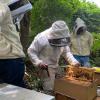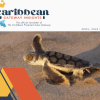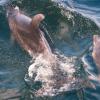COAST Insurance: An Assessment of Grenada’s Fisheries Sector (2019)
Over the long term, Caribbean fisheries face many pressures. These include poor fishing practices and poaching; degradation of supporting habitats such as coral reefs, seagrasses, and mangroves; sargassum blooms, and invasive species such as lion fish. But in the long term, the list is topped by climate change. Already, studies show that it is modifying the distribution and productivity of fish stocks. Projections suggest that over time it will cause a series of profound biophysical and socio-economic impacts that could undermine the sustainability of fisheries and the livelihoods of the communities that depend on them.
Tropical storms and other major weather events, which are intensifying due to climate change, hit the islands’ fishery communities disproportionately hard by preventing fishing before, during, and after the events. During the event itself, vessels and fishing gear are destroyed or damaged. Afterward, the harm is compounded by loss of public services such as electricity, fueling stations, piers, and roads. Fishery products stop flowing to market, causing special hardships in poor communities.
Yet at the same time, fisheries can play an important role in disaster recovery. While the sector is highly vulnerable to climate hazards, its people can get back out on the water as soon as they have good weather—and functioning boats and equipment. They can bring back fish to communities that would otherwise go hungry after a disaster. For this reason, a rapid bounce-back of the fishing industry after weather events can be critical for overall recovery and food security in the Caribbean.
Recent hurricanes and their devastating effects demonstrate the need for a climate risk insurance product to ensure that fishing communities can quickly rally after such events.
To meet this need, the Caribbean Ocean and Aquaculture Sustainability faciliTy (COAST) initiative was developed. COAST is an innovative climate risk insurance mechanism to promote food security, livelihoods of fisherfolk, fisheries resilience, sustainable management of coastal infrastructure, and disaster risk reduction in the Caribbean.
Area of interest: Grenada
Year: 2019




